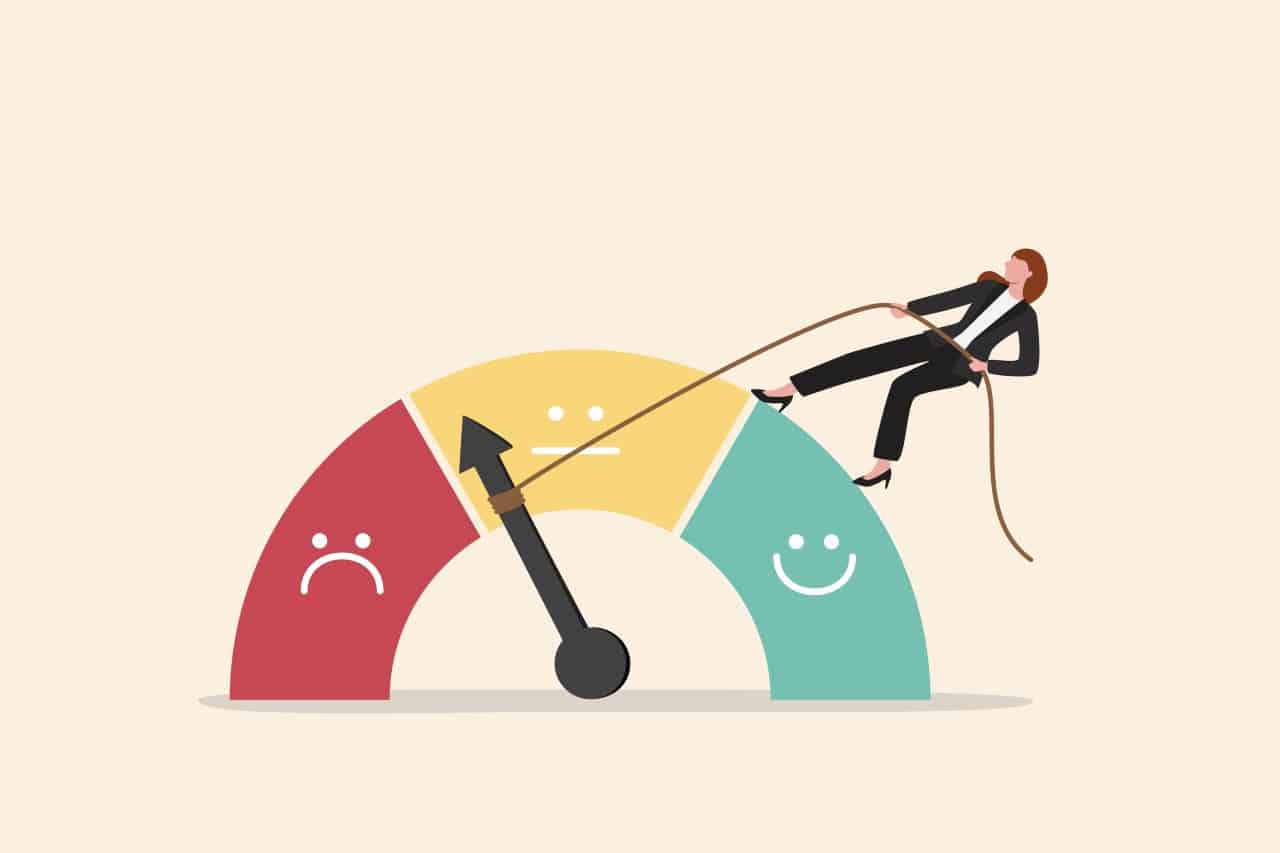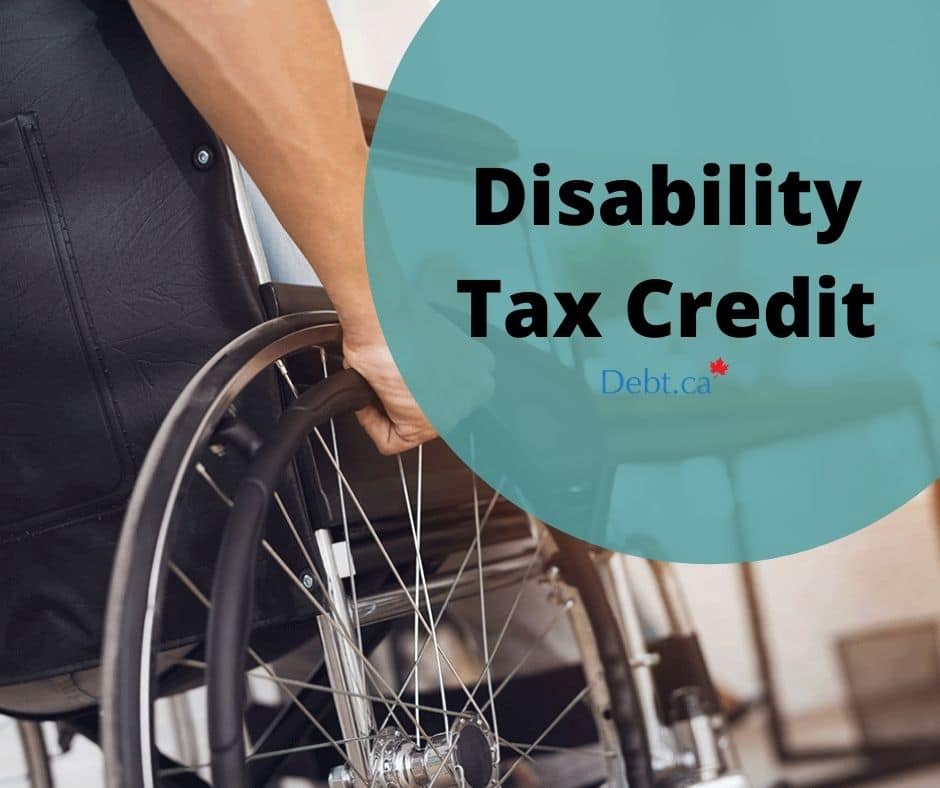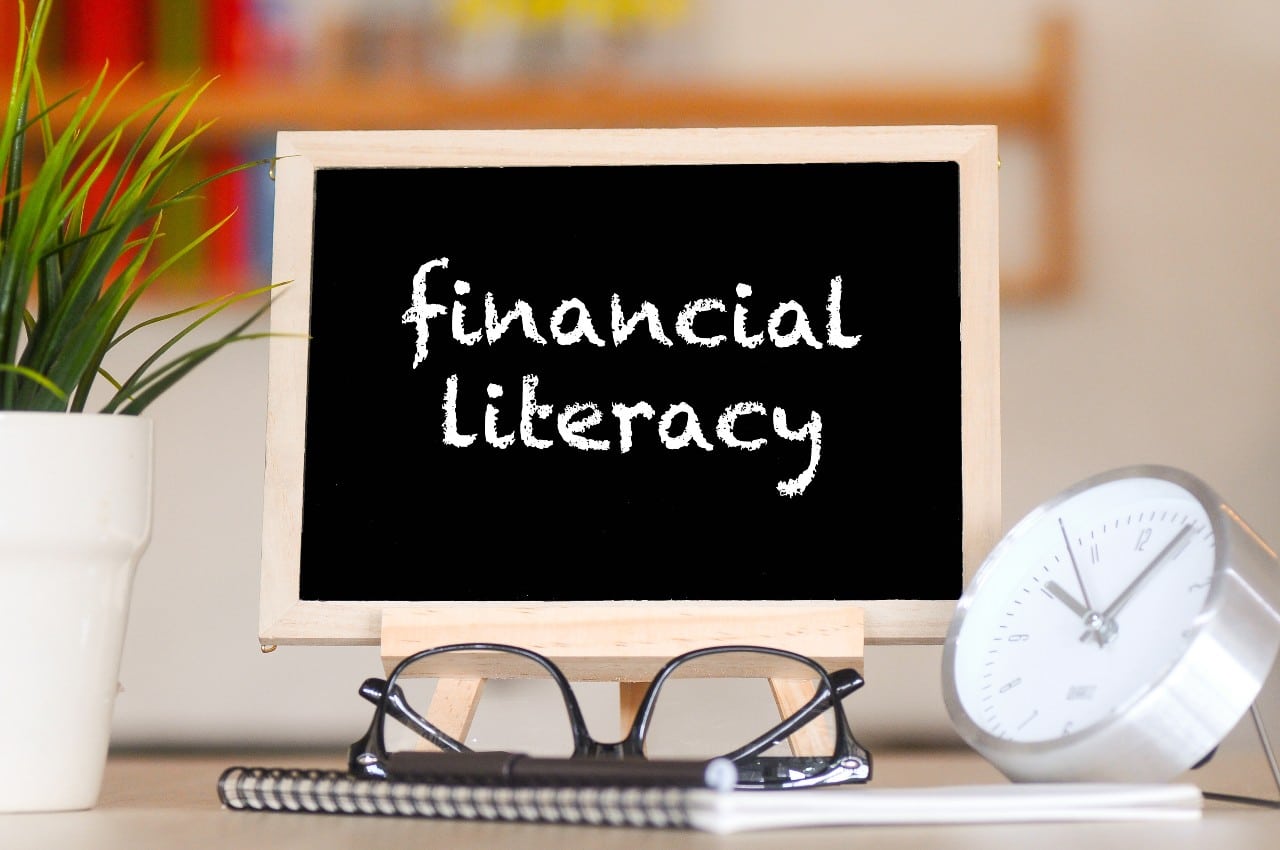Credit Score Is Not A Bore!
I get it. Doing money-related stuff can be the most BORING, mundane task on your to-do list! If your adrenaline’s pumping, there’s probably little else better at getting it back under control than looking at your credit report. I admit, those reports are mighty boring to look at and the tiny fonts aren’t doing them any favours. You probably guessed by now that I’m going to follow up all this dissing with a big reveal, and you’d be right. Did you know that your credit score can even affect the kind of house you live in? Allow me to use the POV of my young cousin, Farah, to reinforce the importance of a good credit score and make it well, less boring!
Farah Needs Credit
Farah, a freshly minted university graduate, has moved to a new city to start her new job at an ad agency. She starts by opening a checking bank account. The banker has noted this down. She also asks her bank for a credit card, which has again been duly noted by the banker. Next, she goes to a cellphone company to get a new SIM card. That has also been noted down by the folks at the telecom company. All these notes are compiled by the people at the credit bureaus.
Farah’s next stop is a prospective landlord’s office who owns this gorgeous waterfront condo that she’s stalked on Zillow between classes. The landlord says that before he can rent it to her he needs to check her ‘credit score.’ Turns out, he isn’t entirely happy with what he read and her rental application is denied.
Farah realizes this cannot happen again. Especially, because her next stop was going to be the car dealership to buy the Kia Forte her neighbour used to cruise around in.
If the report stays unsatisfactory, she may not get favourable interest rates for any future loans, her credit limits may be set lower, and she may be labelled as ‘high risk’ by lenders. Even her insurance premium could get impacted in some provinces.
Taking the first step to get back on track, Farah accesses her credit report online for free from Equifax and TransUnion. She notes that her score is 650. She also sees some sporadic letters like O and R and 0 and 1.
Farah Understands Her Credit Score And Credit Report
A credit score can range from anywhere between 300 and 900. The higher the better. A score of 900 is excellent, a nearly hypothetical credit score to hit. A score of 300 is rock bottom. Ideally, your credit score should be above 660. Farah is just about there. As she looked over the report she noticed an array of letters and numbers. Curious about what they mean, she looked them up and learned that they each denote a characteristic of the credit accounts she has open. Here’s what each of them means:
I: Instalment credit, for example, a car loan
R: Revolving or recurring credit, for example, a credit card
O: Open status credit, for example, a mobile phone account
M: Mortgage
0: Too new to rate
1: Paid within 30 days/as agreed upon
2-5: Late payment by a set number of days
9: Bad debt/bankruptcy
Farah has taken out a credit card and a mobile phone account so she has the corresponding letters appearing in her profile. Plus she is new to credit hence the number 0.
Her credit report has information from every lender and institution she has financial dealings with. It also tells her whether she has been servicing her debt on time. She learns that if she misses making a single credit card payment it will reflect in this report too.
Farah can access the updated version of the report every 30 days. As a healthy practice, Farah accesses her credit report from a different credit bureau every 2 months. At first, she had heard that accessing your report too much would hurt your credit score. She’s since learned that it does not impact her credit score. In fact, by reviewing her score frequently she can improve it.
Farah’s Got Credit
Young Farah’s credit report shows the number 0 in a few places, meaning she is too new to rate. The mortal universe has known about her for a while now, but the financial one is just getting to know her. So she goes about building a bit of financial history. How? She starts using her credit card – at malls, for a movie ticket, for her groceries, for a glass of Negroni Sbagliato with Prosecco. Most importantly, she ensures she pays the bills on time. This credit card usage helps her establish a credit history. It tells the financial world at large that hey! I’m here, and Farah always pays her debts.
Farah Takes On Too Much Debt
With a bit of credit history to show, now Farah’s got her eye on that Kia Forte. She applies for a car loan. She is lured by another credit card company offering discounts on gas and eating out, both of which have been punching a big hole in her wallet. To maintain her lifestyle, she simultaneously applied for 2 more credit cards.
Meanwhile, that waterfront condo that she was denied, is now up for sale. Farah wants it, so a mortgage is next. Multiple lenders are now checking her credit for different credit products. Farah is accumulating too much debt too fast. This is a red flag to credit bureaus and it’s reflected in the next month’s credit report. She learns – don’t make too many credit applications within a short time span.
She slows it down and spreads it across a few years while never forgetting that golden rule – pay the debts on time. Along the way, Farah develops another feather in her cap, a good credit mix. An indication to the bureau that she can successfully honour different kinds of debts – from a mortgage to a credit card.
How Farah’s Credit Score Didn’t Take A Hit Even When She was Strapped For Cash
There was one holiday season when Farah went a little overboard on her budget and overspent on her credit card. Blame it on holiday consumerism or generosity brought on by the joyful holiday spirit. No matter which one it was, she made sure to pay the minimum payment. All her experience with credit taught her that doing so would ensure that her credit wouldn’t be impacted much.
There’s another little tidbit she learned from her Financial Advisor about those times when she’s struggling to pay on time. If things go awry and even a minimum payment isn’t possible, she must contact them ASAP and ask if some sort of settlement or arrangement to pay can be made. Basically, Farah must not go AWOL on her lenders.
Farah, being the agile and alert taskmaster immediately implemented another strict rule she learned. She ensures not to use more than 30% of the total credit limit available to her. She’s now aware that using more than that means her credit score will take a hit. Doing a quick calculation, she figures out that the total of all the credit limits on all her credit cards is $15,000. With that figured out, she ensures not to spend more than $4,500 before paying off (at least) some of her credit card debt.
Farah Finds Fraud
In her Jan credit report, Farah noticed that a new credit card had been applied for in her name. This was weird because she hadn’t applied for any. She’s got 3 already! A colleague told Farah about how she was once the victim of financial identity theft. Her social insurance number was used to obtain credit fraudulently. Hearing this, Farah knew then that this is probably what happened to her.
Farah opted for a credit monitoring service. It’s like hiring a hawk that monitors what’s happening in her name within the financial world. It alerts her when anything happens with her credit file that can impact her credit score. For example, one month she was alerted that a hard inquiry is being conducted on her credit file for a personal loan. She hadn’t applied for one so she sprung into action. After informing the lender, she let Equifax and TransUnion about the fraudulent inquiry. She also put a fraud alert on her credit report so that lenders will contact her before they approve any applications for credit.
The aim is to prevent any further fraud from happening. This helped in limiting any financial damage that could take place if this were to go unchecked. Which in turn helped protect her credit score. Kind of like a stop loss for your credit score. That’s how checking your credit report frequently can actually end up improving your credit score.
There are several institutions offering credit monitoring services. Paid and unpaid. These provide weekly monitoring updates, free identity protection, hard inquiry monitoring, and fraud alert detection. Before choosing which one to go with she was diligent in researching the company and checking reviews. She has worked hard to create and build her credit score, now this credit monitoring service can protect that score.
Farah Enjoys The Benefits Of All Her Hard Work
Farah’s credit score slowly but surely improved as she lived and learned along the way. It’s not a day’s activity but a dynamic set of steps taken over a period of time that’s helped Farah with her credit. With no debt to worry about and her credit score at a cool 850, she can fully relax while lounging in her hammock enjoying the view from her waterfront condo.
Daily Tasks
Understanding and improving your credit score can be a fairly involved process. To avoid overwhelm, break down the process and do a little each day. Here’s what that can look like.
DAY 1: Obtain Your Credit Report
Checking your credit score on your credit report is fast, free, and simple. Which is the mantra for most of us nowadays. You can access your credit report online for free from Equifax and Credit Karma. You will need your Social Insurance Number to fill out the credit report application form. It’s wise to obtain your credit report frequently.
A healthy practice is to access the report from a different credit bureau every 2 months. TransUnion offers a paid service but it comes with extras like weekly monitoring, detailed explanation etc. Frequent perusal of your report will help you take any corrective action needed if you see your credit score declining. It also helps in identifying potential fraud.
A low score can impact not just your ability to get credit, but your insurance premium in some provinces. it may even affect your ability to rent an apartment. Landlords may check your credit before entering into a tenancy!
DAY 2: Understand Your Credit Score And Credit Report
A credit score can range from anywhere between 300 and 900. The higher the better. A score of 900 is excellent, a nearly hypothetical credit score to hit. A score of 300 is rock bottom. Ideally, your credit score should be above 660. The report gives you details of each and every credit account opened, when you opened the account, whether you make payments on time, and whether you missed a payment. For each account you have, you’ll find an alphanumeric code, That code denotes the type of account it is and how you service it. Here’s what each code indicates:
I: Installment credit, for example, a car loan
R: Revolving or recurring credit, for example, a credit card
O: Open status credit, for example, a mobile phone account
M: Mortgage
0: Too new to rate
1: Paid within 30 days/as agreed upon
2-5: Late payment by a set number of days
9: Bad debt/bankruptcy
DAY 3: Use Your Credit Card, Make (At Least) Minimum Payment
If you’re new to credit, here’s a simple task you can take on to get started on the right path. Opt for a secured credit card, use it in your next grocery run, dinner, night out etc, but most importantly, pay the bill on time!
If you only have a credit card, and your income is healthy, consider opting for a credit building loan. Or, if you need a car, buy it with a car loan. This will help you create a ‘healthy credit mix.’ You’re telling credit agencies that you can successfully honour different kinds of debt, from instalment credit to revolving credit.
If you feel cash strapped with payment deadlines looming, make at least the minimum payment. If you can’t do that, inform the lender immediately. Request for a special payment arrangement. Basically, don’t go AWOL on her lenders.
A simple rule of thumb to maintaining good credit – don’t use more than 30% of the total credit limit available to you.
DAY 4: Opt For A Credit Monitoring Service, Opt For Fraud Alert If Needed
Take your pick from the variety of paid and unpaid options available out there. I personally like Borrowell, Mogo and TransUnion.
Hiring a credit monitoring service is like hiring a hawk that monitors what is happening in your name in the financial world. It alerts you when there is an activity that takes place that can impact your credit score.
For example, if a hard inquiry is being conducted on your credit file by a lender, but you haven’t imitated any credit application with that lender, you know your data is compromised and you can spring into action,
A good practice is to ask Equifax and TransUnion to put a fraud alert on your report. This way lenders will contact you before they approve any applications for credit. The aim is to prevent any further fraud from happening. This will help limit any financial damage that could take place if this were to go unchecked. Which in turn helps protect your credit score.











